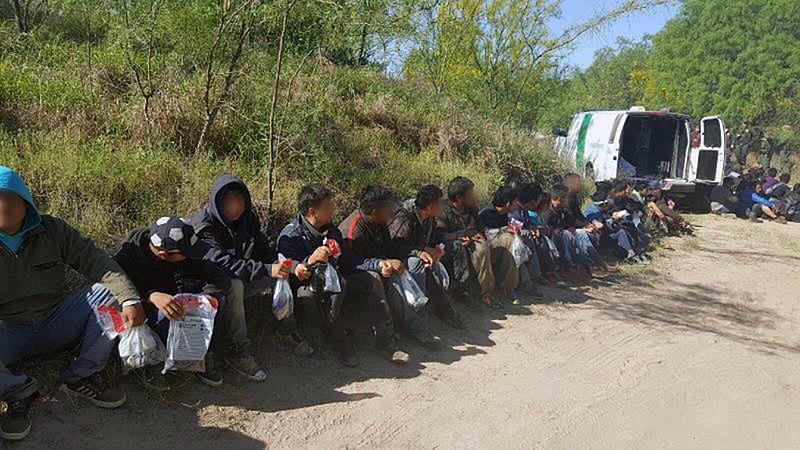- 14 3402-5578
- Rua Hygino Muzy Filho, 737, MARÍLIA - SP
- contato@latinoobservatory.org
 Wikimedia Commons
Wikimedia Commons
Hundreds of Venezuelans walk through the Darién jungle, on the border between Colombia and Panama, with the mission of reaching the United States, which has just stopped the entry of undocumented immigrants from Venezuela.
“With wounds on their feet, blows and telling about the horrors that they have lived for several days, they arrive in groups to the indigenous community of Canaán Membrillo, the first Panamanian border control in this jungle region. Several travel with children and babies”, according to France 24.
Human mobility is increasing at unprecedented rates in a hemisphere plagued by government crises in countries such as Venezuela, Cuba, Nicaragua and Haiti, in addition to the economic, social and political consequences of the Covid-19 pandemic and the damage caused by the climate crisis.
According to an opinion piece by El Pais, “Last decade, less than 95,000 migrants passed through the Darién. Last year, 134,000 made the journey. Last month nearly 50,000 did. This month, Canaán Membrillo is receiving anywhere from 1,500 to 2,000 new migrants daily”.
“People are on the move for myriad reasons – basic survival, fleeing political persecution, seeking safe harbor from criminal violence, wanting to reunite with family, or pursuing a better life for them and their families. Despite the variety of motivations most, according to the men, women, and children with whom me and my colleagues spoke, share at least one thing in common – a core belief that the chance at a better life awaits them in the United States, if they can just get there”, according to the same publication.
“Everyone risks their lives for a future, but I really don't recommend coming for the jungle, it's very strong, it's very difficult”, Jesús Arias, 45, told AFP, as led by France 24.
“I saw many dead, many mountains, many rivers that took many people [...] it was horrible”, said Nélida Pantoja, 46. In addition to topography, migrants are at the mercy of wild animals such as poisonous snakes and also criminal groups. “She travels with 10 other people, including acquaintances and relatives, and despite Washington’s order to expel irregular Venezuelans, it also states that they ‘will continue to try’ to reach the United States”.
According to Panamanian forensic authorities, since 2018 at least 100 people have died trying to cross the Darién, 2021 being the worst year with 53 deaths.
“The $2.8 trillion in economic activity of US Latinos in 2020 was fifth only to the gross domestic products of the United States, China, Japan, and Germany. The US Latino economy is roughly equivalent to the combination of Latin America’s two largest economies – Brazil with a gross domestic product (GDP) of $1.61 trillion and Mexico with a GDP of $1.29 trillion, despite the 62.1 million US Latinos being less than one-fifth the combined population of Brazil and Mexico (341.5 million)”, according to data from El Pais.
“The success enjoyed by Latinos in the United States carries with it an important lesson that relates back to the historic number of people on the move across the Americas. Like anyone else, Latinos can flourish when presented with opportunity in an environment that provides basic guarantees and the rule of law. It is the absence of those conditions in too many countries across the Americas – North and South of the Darién – that is fostering the conditions forcing more and more people to look for a survivable present and better future elsewhere”.
“Thanks in no small part to the drive and
determination of US Latinos, the promise of America endures. As we conclude
Hispanic Heritage Month, we must hope the example of America, however
imperfect, and the success of US Latinos can inspire not only risk takers
looking North, but a new generation of civic, political, and economic leaders
across the Americas to foster the conditions needed for populations to live and
prosper right where they are”, concludes the El ais article.











